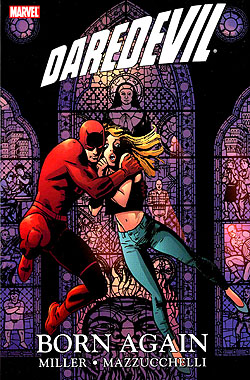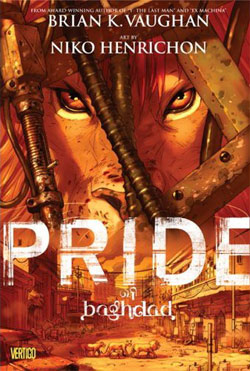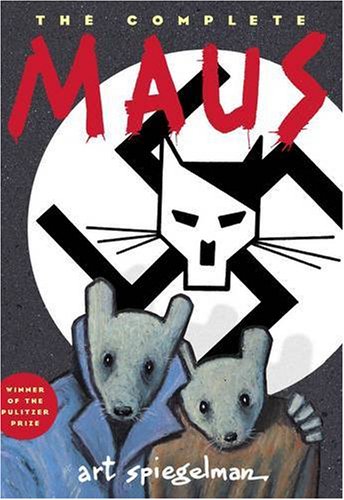3. The Complete Sandman by Neil Gaiman and Others inc. Dave McKean (Covers), Sam Keith, Mike Dringenberg, Jill Thomson, Charles Vess and Mike Kaluta.
In a recent interview comics legend Alan Moore waxed lyrical about many things (but any who have read the thread will know it annoyed me in places), and one of the things that I disagreed with was his assertion that Watchmen stood alone as an epic story with a beginning middle and end, with unique characters and original story.
It's odd, then, that he seemed to forget The Sandman, written by someone who was at one time considered to be Moore's protégée and current highly acclaimed author Neil Gaiman. Perhaps Moore was referring to the superhero genre in which case he is probably right, but if anything The Sandman is more original and complete than The Watchmen.
It could be argued that The Sandman is based on the Golden Age character, but only in name. When Gaiman was offered a chance to write for DC he took the name and went in a totally different direction, with only the most tenuous links to the original character,; and the same could be said of Watchmen based as they are on the Charlton heroes.
But The Sandman, a modern fantasy, a masterpiece of graphic storytelling , introducing iconic characters that in many ways have transcended the medium. It draws on DC history and brings in old characters in new ways, but the central character is new and unique and so are his brothers and sisters, and the mythology that entwines them.
Many years ago, an occultist determined to capture Death and thus banish it from the world makes one error and instead captures Morpheus the lord of dreams, and in doing so sets in motion a chain of events that will shatter the status quo of reality.
Morpheus, or Dream (The Sandman) is a member of a an anthropomorphic beings known as the Endless. Death, Destruction, Despair, Desire, Delirium and Destiny. Each represent their names, but there are a few surprises - we know that Destruction grew tired of his role, walked away from his realm and is now loose on the world (see what is being said there?); that Despair died and was replaced in the distant past and that the oldest is Death " When the first living thing existed, I was there waiting. When the last living thing dies, my job will be finished. I'll put the chairs on the tables, turn out the lights, and lock the universe behind me as I leave." And of course instead of appearing as a skeletal reaper, she is a spunky goth girl.
The tale starts with Morpheus attempt to discover and regain things that were taken from his while he was imprisoned, but it moves on from there, leading to misunderstandings and twists as each event leads to another ultimately culminating in a point where one of the Endless will fall.
It is stunning, filled with masterpieces, award winning stories, (A Midsummer's Night Dream) stands out, memorable characters and quotable lines (normally from Death), and although many of the characters have appeared elsewhere since, the Endless and Dream have been left well alone (Except by Gaiman, and artist Jill Thomson who plays with her cuddly li'l Endless now and then).
There is so much depth, so many great characters in it, not to mention on those from the DC universe that he draws upon and reinvigorates, that it is virtually impossible to do it any justice in a simple paragraph or two.
There are a few graphic novels that can claim to me classics of the genre, but very, very few that can be seen as literature, fewer still that are recognised as this by the media. The Sandman is. It has won top literature awards, it is, in it's own right an epic fantasy, it presents a world that is as detailed as virtually any others you might read, but more it is unique.
If you want to read something that is storytelling, not comic-book, but something that transcends the media then this is it.












